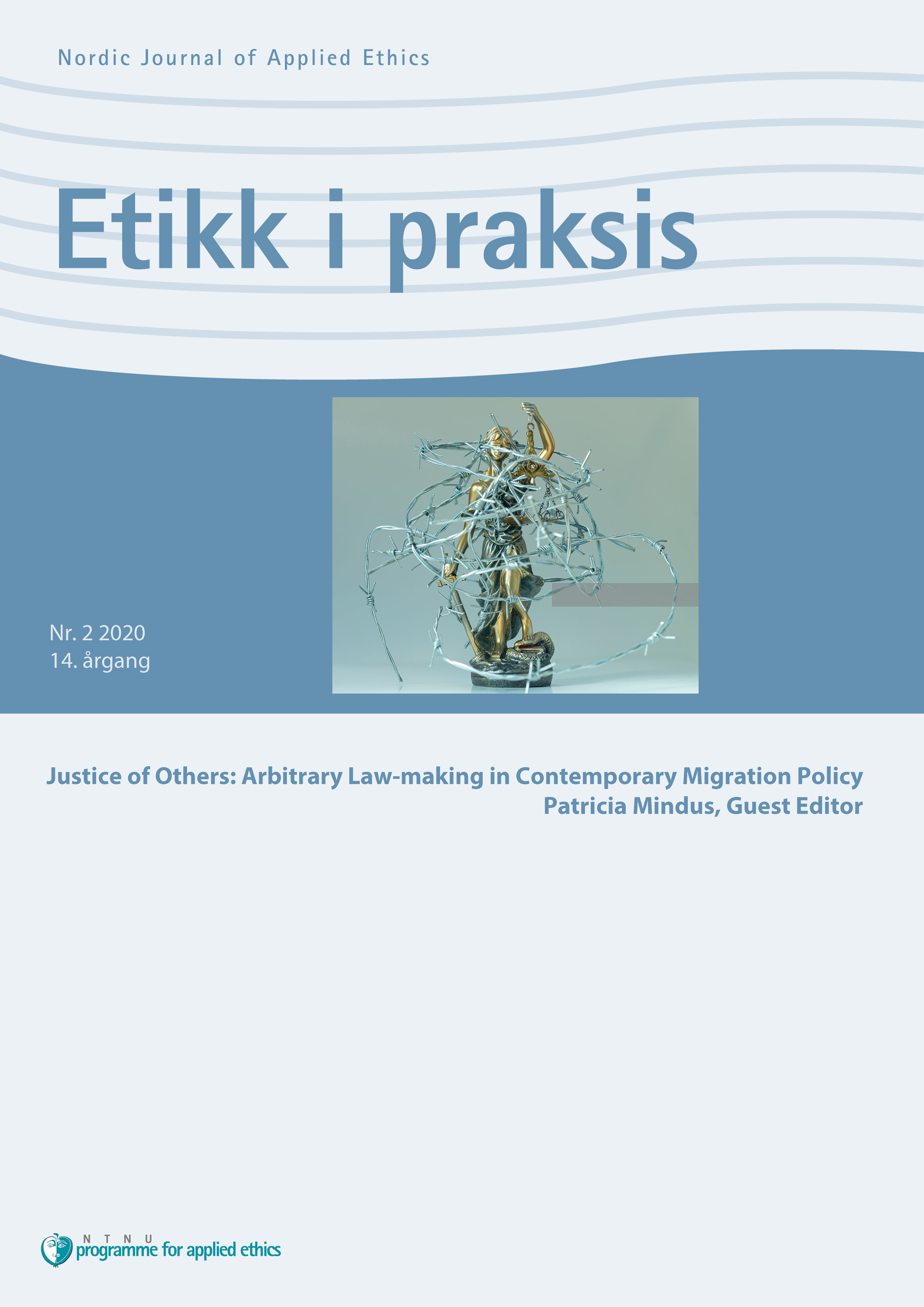The Justice of Others
Arbitrary Law-making in Contemporary Migration Policy
DOI:
https://doi.org/10.5324/eip.v14i2.3830Abstract
The special issue covers both fronts by presenting a conceptual analysis of arbitrary law-making that sets out to typify its various meanings, along an empirical account of its actual functioning in legal and political practice. As arbitrariness becomes a pressing concern for lawyers, politicians and scholars attempting to grasp the discretionary powers of judicial and administrative authorities vis-a-vis legal subjects, its social impact as well as its political consequences must be taken into consideration in order to fully comprehend how central arbitrariness has become for a philosophical and a sociological account of law-making. Migration policy is precisely where arbitrariness vividly shows its face, and where its various forms unleash their most revealing implications. It is in this field that we must dig further if we want to know how this hitherto peripheral and surrogated dimension of legal decision-making stretches the leeway of legal officials to the very margin of legality, disclosing the social tension and the power struggle between their agency and the structures that condition and enable it.
Downloads
Published
How to Cite
Issue
Section
License
Copyright (c) 2020 Patricia Mindus

This work is licensed under a Creative Commons Attribution 4.0 International License.


